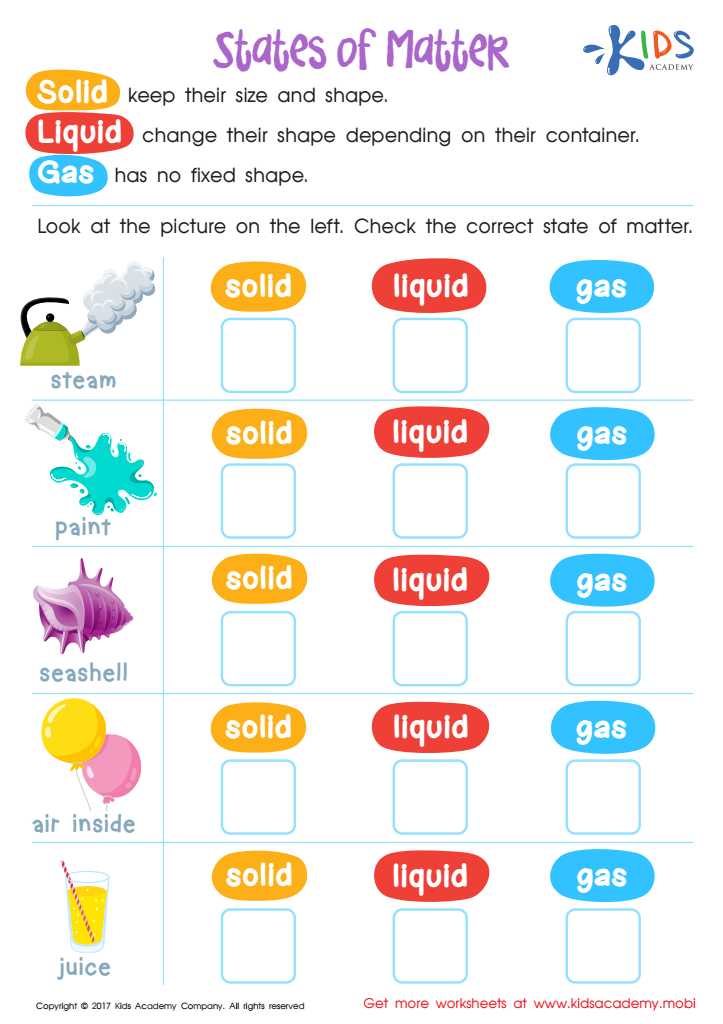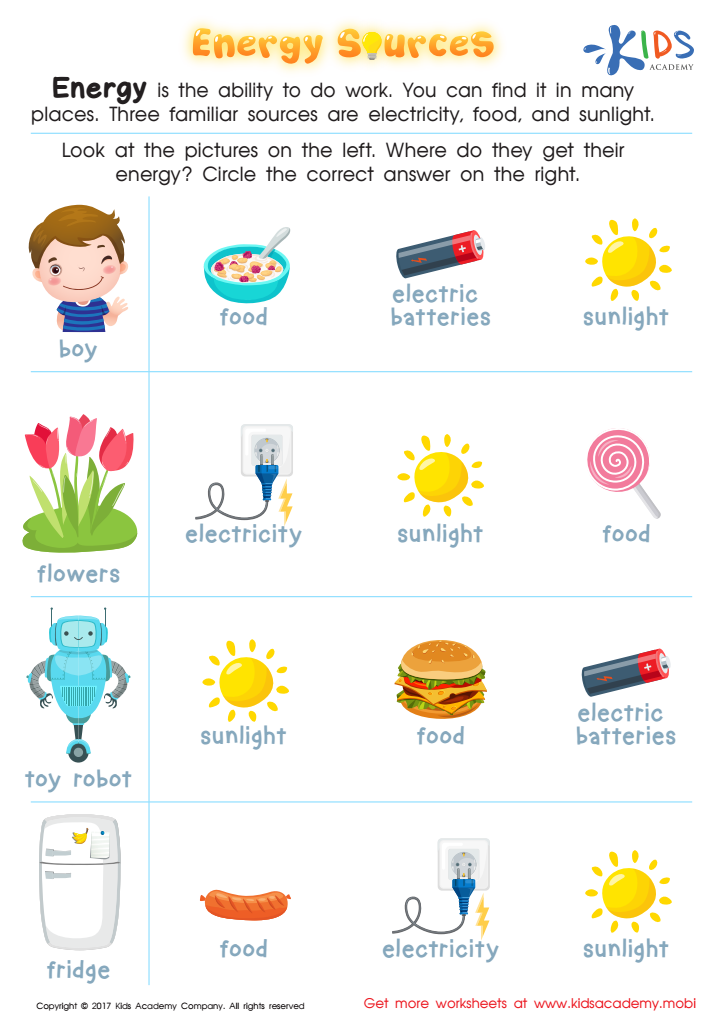Physical Science Worksheets for Ages 6-9
3 filtered results
-
From - To
Explore our engaging Physical Science Worksheets tailored for kids aged 6-9! These captivating activities are designed to spark curiosity and foster a love for learning fundamental science concepts. From exploring states of matter to understanding simple forces and motion, each worksheet breaks down complex ideas into easy-to-grasp exercises. Perfect for classroom and homeschool use, they provide hands-on experiences that make science fun and relatable. Our answers key ensures parents and teachers can effortlessly guide and support young learners throughout their journey. Empower your child with essential science skills through our carefully crafted worksheets!


Physical Science: States of Matter Worksheet


Sink or Float Printable


Energy Sources Printable
Having a foundation in Physical Science is crucial for young learners aged 6-9 because it fosters curiosity and builds essential critical thinking skills during a child's formative years. During these early years, children are naturally inquisitive and full of wonder about the world around them. Introducing them to basic concepts in Physical Science, like gravity, magnetism, and energy, helps channel this curiosity into structured learning and discovery.
Parents and teachers should care about this subject because it lays the groundwork for scientific literacy. By exploring Physical Science, children develop observation, questioning, and problem-solving skills. Activities like simple experiments or building structures can enhance their understanding of cause and effect, and improve their motor skills and coordination.
Moreover, engaging with Physical Science early on encourages a positive attitude towards learning and interest in STEM (Science, Technology, Engineering, and Mathematics). This early exposure can set the stage for future academic success and career choices. It also opens the door for collaborative learning, as children often work in pairs or groups for science projects, fostering social skills and teamwork.
Overall, nurturing an interest in Physical Science in young children isn't just about academic growth—it's about shaping curious, knowledgeable, and confident individuals who are excited to explore and understand the world around them.

 Assign to the classroom
Assign to the classroom












